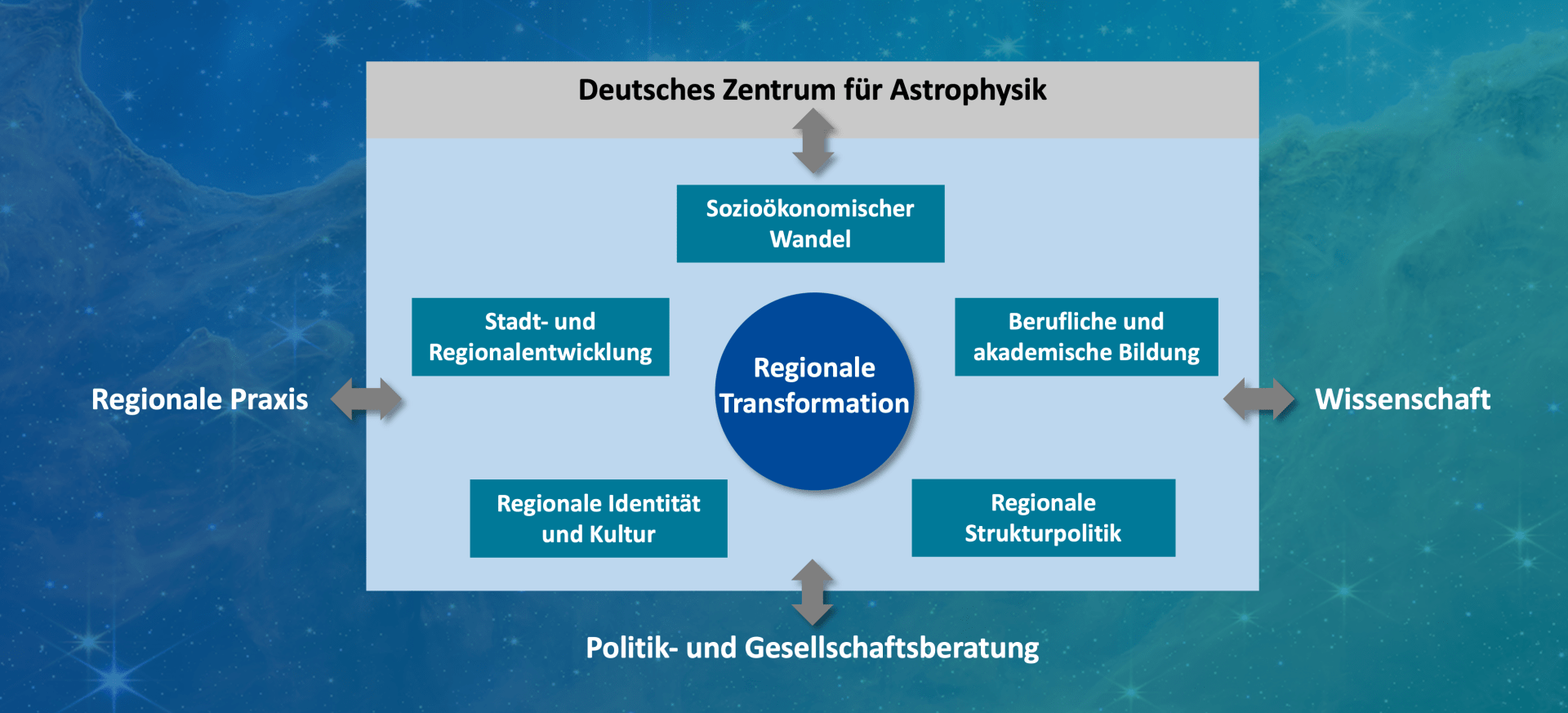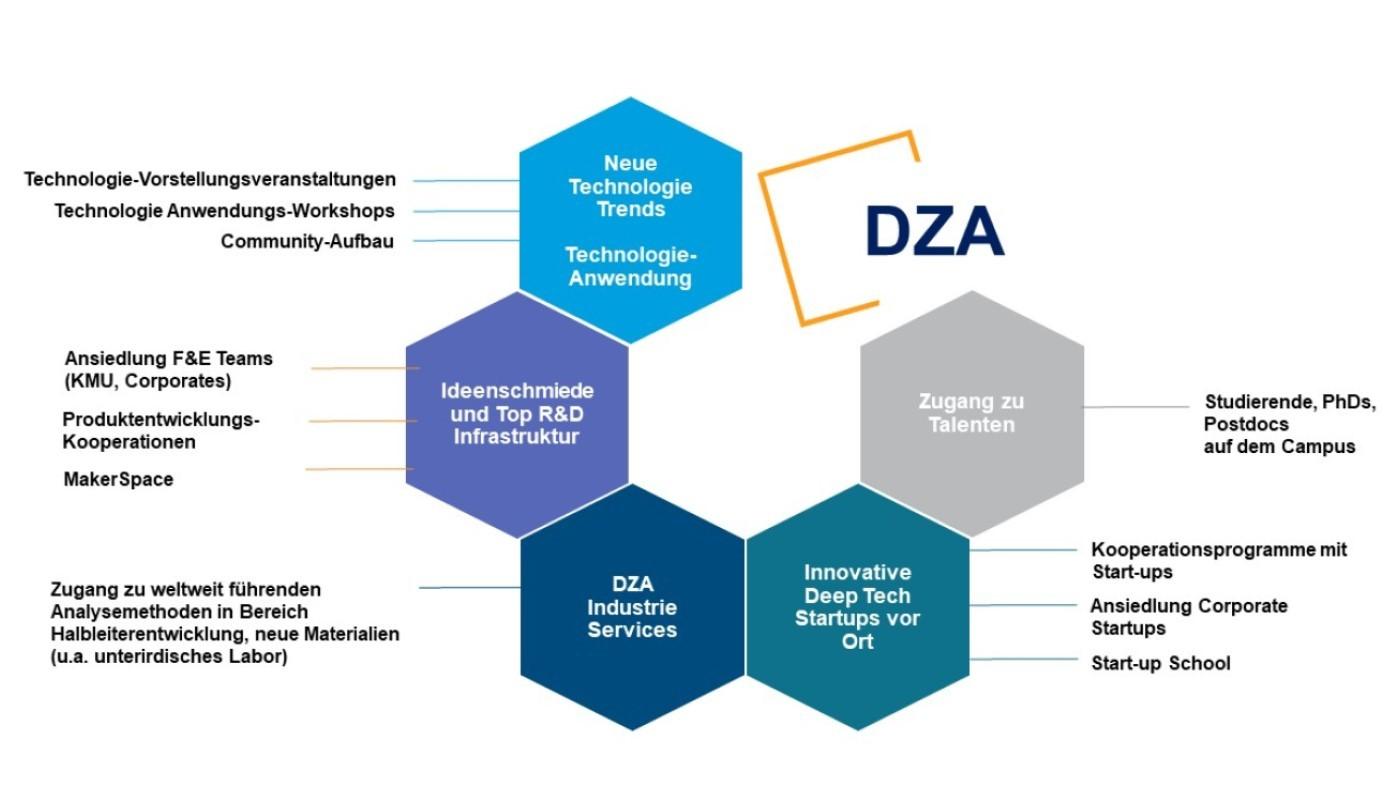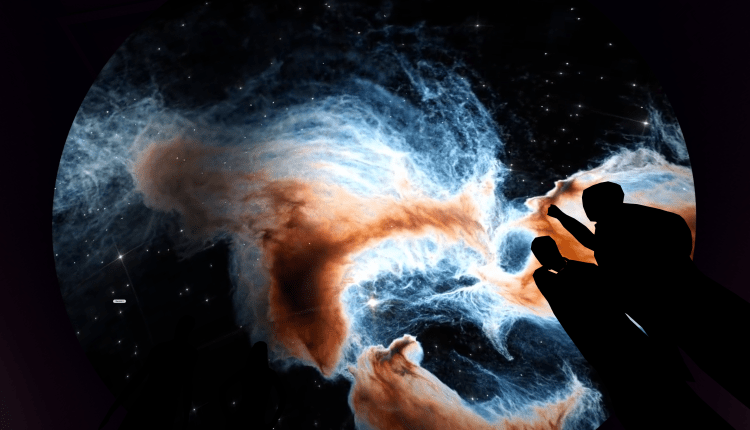

Dawid Statnik, Chairman of Domowina, Federation of Lusatian Sorbs
»We Sorbs are inherently well-suited for processes of transformation due to our multilingualism. We are therefore excited about the DZA concept. What particularly convinces us is the ambition with which it aims to reach for the stars—something that can inspire all of Lusatia.«
Making Change Measurable

How can the establishment of the DZA contribute to the structural change of Lusatia's economy? What impact will it have on the education landscape? How will urban and rural environments evolve, and what will this mean for the region's culture and identity?
The Department for Transformation Research at the DZA will actively monitor the establishment of the DZA in the region, using scientific methods. In doing so, it will contribute to shaping the transformational change on a solid scientific basis.

Networks for Technological and Industrial Development

In recent months, the DZA has established a robust network of partners in technology development, ranging from non-university research institutions and small engineering firms to the largest semiconductor manufacturer in Dresden. Over 80% of the companies in the DZA’s industrial network are small and medium-sized enterprises (SMEs). These companies are eager to contribute their expertise to the DZA and are committed to tackling new challenges in astrophysics.

